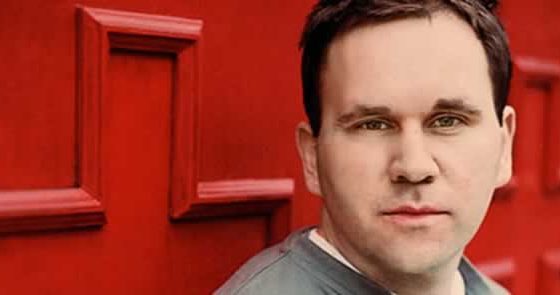We spoke with Angela Thomas about her book Do You Think I’m Beautiful?. Angela is a follower of Christ, mother, friend, best-selling author, speaker and teacher. She is a woman in desperate pursuit of God.
Angela, you wrote, Cinderella is always someone else. Please explain that.
Most women come to realize very early on that Cinderella is always going to be someone else. For the most part, we are the women who show up at the ball and did the best with our hair and our dress, really anticipating, hoping the prince would look in our direction and ask us to dance. But most us found out that we’re going to just stand on the edge of the room and smile politely to one another.
And you say that women long for beauty of complete acceptance, not just body image.
You know, it’s all intertwined. For me, there is a deeper beautiful I long for. Some days, there is a body image desire; and some days it seems it’s all about body image.
But when I really get to the truth of my heart, I realize that the beautiful I long for is that someone would be able to see the all of me — the scars of me, the wounds of me, the tripping, stumbling me — and they would still look into my eyes and say, “I see all of that. And I still think you’re beautiful.”
Now, is that true of just Christian woman?
I truly believe that the feminine soul came wired longing for beautiful. I believe God put it into our DNA. You know when a woman walks into a room, either she is screaming, “Do you think I’m beautiful?” Or she learned a long time ago, don’t ever ask that question again, it doesn’t belong to me.
Every once in a while, a woman walks into a room, and you know that she knows what God thinks of her. And she’s captivating. And she moves in great beauty, and she is alluring. I want to stand next to that woman.
I realized that for many years, I denied that I wanted anything to do with beautiful. I learned by the ninth grade that anything that required of me to be beautiful would not belong to me. So I decided to pretend (laughs), I would say, “Well I really didn’t want to be that anyway.”
For most of my grownup life I had denied that I really, truly long to be known as beautiful.
In this day and age of advertising and emphasis on appearance, can women look past those images and look to their inner beauty and feel secure?
I think to ask a woman to look past all the external and just look beautiful internally is a mockery. It’s not how God wired us; it’s not how He put us together. So I would say to that woman, I think it’s okay. It’s okay with God for you to do the best you can with what you have.
There isn’t a woman alive who doesn’t move out in a sense of greater confidence because she’s tried to do the best she can. When I get to a platform to speak to a group of women, I try to do the best I can with my makeup and wardrobe, so when I get to the platform it’s not an issue and we can be about the business I’m supposed to be about.
So to deny that this outer beauty has such a powerful impact on us is to deny the way God put us together. He gave us sight and this desire to be surrounded by beautiful things. I don’t think He wired us to long for beautiful and then requires us to pursue plain.
And of course us men are visually driven aren’t we.
Exactly. That’s what I hear. (laughs)
In the book, you share your feelings of dancing with God. Tell us about that.
I never envisioned myself as Cinderella; I always envisioned myself as one of the women standing around the edge of the room watching. I could feel my feet; they wanted to dance. I wanted to be in the arms of the prince in the middle of the room
I finally came to realize there are no wallflowers with God. He calls each one of us out. He looks out into the room and looks to the eyes of the woman He made. He is enthralled with her beauty (Psalm 35:11). The King — as Eugene Peterson paraphrases — is wild about you.
I love that. I envision the God of heaven, the one who thought of me before I was, seeing me across the room, looking in to my eyes and saying He’s wild about me, asking me to dance with my life in His arms. For me the analogy is very powerful.
That is a great image.
And when you first learn to dance, we aren’t sure of the steps. So, God says to us, “I’ll lead, you follow.” Then the time comes when you get the steps down and you can take your eyes off yourself, you can lift your head and look into the eyes of your beloved.
As we mature in Christ, we get the steps down. And it frees us, to look into the eyes of God.
There’s a great chapter about noise and clutter and you write that they can infiltrate a woman’s mind, binding her heart and holding her hostage. What do you mean by that?
Well, if dancing in the arms of God is the whole idea of this journey, there are a million ways the world tries to cut in. One of those ways is to fill my head with noise and my life with clutter. Sometimes that is literal noise and clutter, but most of the time it’s emotional, mental and spiritual noise and clutter. Things that keep speaking loudly to us, like the voice of the accuser who says to a woman ever since she was a little girl that she’s fat, ugly or plain or that she’ll never amount to anything — that is not the voice of the Father.
There are things that clutter up how we live and interact. I know how it is in my own house with cutter; I mean to pick those things up, but after a while I just run past them and leave the tennis shoes on the steps. We can do the same thing emotionally. It can prevent us from dancing in the arms of God.
How can a woman deal with that clutter?
The first step is recognition; a conscious recognizing that I’ve been asleep in the presence of God and I’m beginning to wake up and see what’s around me. There has to be a healthy awakening.
Then there is a conscious deciding that I’m going to do whatever it takes to take care of these things and begin to get healthy.
Angela, what role does a husband play in supporting these principles?
I think in some ways, women can get this turned upside down. We hear the question in our souls — Do You Think I’m Beautiful? — And believe the man we love can provide the fullness of the answer. When in fact, he can only give part. He’s just a man.
The fullness of the answer resides with God.
If I were a man and heard that I’d say, goodness, I just got off the hook. I’m not responsible to give this woman everything. I knew I couldn’t, but know I’m off the hook.”
But the husband still has responsibility to respond to the Holy Spirit and give his wife part of that blessing. He won’t be able to provide it all, because that’s God’s job. But the Spirit will prompt him to give her part. The responsibility of the man is to respond to that prompting faithfully, and to speak into the life of the woman he loves.
Copyright © 2004 Marriagetrac.
Read more from Angela at AngelaThomas.com.



 Jim is the founder, with wife,
Jim is the founder, with wife, 







